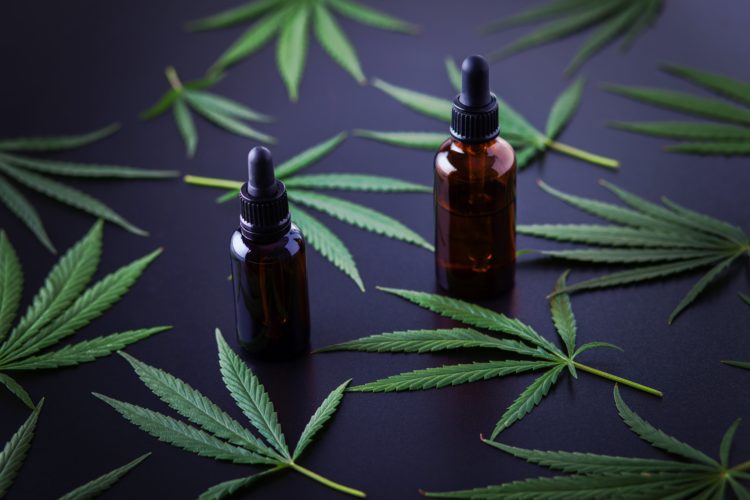
Have you ever heard of a grain of rice being used to measure cancer cells? This unusual and powerful tool is the result of Rick Simpson’s invention, RSO oil. RSO oil is a type of cannabis oil created by Rick Simpson that has gained popularity in recent years for its potential medical benefits. In this paper we will explore what RSO oil is, who created it, and how it can be used to treat various illnesses like basal cell carcinoma and skin cancer. We will also discuss the origins of cannabis plant oils and the variety of products used for medical treatment today. By the end of this paper, you’ll understand why more people are turning towards natural treatments like RSO Oil for relief from their ailments.
What is RSO Oil?
RSO oil, also known as Rick Simpson Oil, is an alternative cannabis-based treatment that has been developed by the Canadian engineer and medical cannabis activist Rick Simpson. It is a potent concentrate of cannabis extracts that provides a range of cannabinoids and terpenes to treat various illnesses. The use of RSO oil in treating cancer was initially discovered when Simpson treated his own skin cancer with this method. In the following years, more evidence has emerged supporting its efficacy in treating other types of cancers, including basal cell carcinoma and skin cancer. The preparation process for RSO oil involves grinding plant material with a rice cooker or coffee grinder and then boiling it down into a concentrated form using either a stovetop or double boiler. The liquid is then drawn off with a plastic syringe and stored in dark glass bottles until needed. Clinical trials are still being conducted to further prove the effectiveness of RSO oil, but solid evidence exists today to attest to its potential benefits.
Who created RSO Oil?
RSO oil was created by the Canadian engineer and medical cannabis activist, Rick Simpson. Simpson initially developed the oil in his attempt to treat his own skin cancer in 2003, and he soon found out that it had potential for treating other types of cancers such as basal cell carcinoma and skin cancer. The preparation process for RSO oil involves grinding plant material with a rice cooker or coffee grinder and then boiling it down into a concentrated form using either a stovetop or double boiler. After extraction, the liquid is stored in dark glass bottles until needed. Over the years, more evidence has emerged supporting its efficacy in treating various illnesses, prompting more clinical trials to further prove its effectiveness. Today, RSO oil enjoys a growing reputation as an alternative treatment option for those seeking relief from their medical conditions.
Benefits of Using RSO Oil
RSO oil has become increasingly popular in recent years as an alternative treatment option for cancer patients and those with other serious medical conditions. The oil is a concentrated form of cannabis, made from the cannabis plant that contains a wide range of cannabinoids, including THC and CBD. It is believed to have several potential benefits when used as part of a comprehensive treatment plan for cancer, particularly when combined with traditional treatments such as chemotherapy and radiation therapy.
Studies have demonstrated that RSO oil may help reduce tumor size, prevent the spread of cancer cells throughout the body, reduce pain and inflammation, improve sleep quality, enhance appetite, and even promote general well-being. Furthermore, anecdotal evidence suggests that some patients have experienced complete remission or improved symptoms after incorporating RSO into their treatment plans.
However, it is important to note that there is still solid evidence supporting its efficacy as a cancer treatment option. Additionally, due to its highly concentrated nature, it should only be administered using a plastic syringe or dropper bottle in order to avoid overdosing. For this reason, it is recommended that those considering using RSO discuss their options with their doctor before beginning any course of treatment.
Cancer Cells and Grain of Rice
Cannabis-based treatments have become increasingly popular in recent years, with one of the most well-known is Rick Simpson Oil (RSO). The oil is a concentrated form of cannabis made from the plant material that contains a range of cannabinoids, including THC and CBD. Studies have shown that RSO may help reduce tumor size, prevent the spread of cancer cells throughout the body, reduce pain and inflammation, improve sleep quality, enhance appetite, and even promote general well-being.
Anecdotal evidence also suggests that RSO may be effective for treating certain forms of cancer. In fact, a study conducted by Canadian engineer Rick Simpson found that when applied topically to basal cell carcinoma skin cancer tumors on mice, it was able to shrink the tumors down to the size of a grain of rice. While more research needs to be done in order to determine its full potential as an anti-cancer treatment option, these results are promising and warrant further exploration through clinical trials.
Medical marijuana patients who are interested in exploring RSO should consult their doctor before beginning any course of treatment. It is important to note that due to its highly concentrated nature, only plastic syringes or dropper bottles should be used when administering it in order to avoid overdosing.

How Cancer Cells Differ from Healthy Cells
Cancer cells differ from healthy cells in a variety of ways. On the molecular level, cancer cells have damaged or mutated DNA which leads to uncontrolled growth and proliferation. This is due to genetic mutations caused by external factors such as radiation, toxic chemicals, and viruses. As cancer cells grow, they can crowd out healthy cells, leading to the formation of tumors. In addition, cancer cells lack the ability to effectively carry out normal functions like normal cell division and apoptosis (cell death).
On a cellular level, cancer cells tend to be larger than healthy cells, with irregular shapes and more pronounced nuclei. They also tend to have fewer organelles than regular cells and may contain extra chromosomes or abnormal numbers of chromosomes. Furthermore, instead of sticking together like healthy cells do in order to form tissues and organs, cancer cells break apart from each other and move through the body using their own energy sources.
Overall, these differences between cancer cells and healthy ones help explain why some treatments are better suited for treating certain types of cancers compared to others. As medical research continues to uncover additional information about how cancer works on a cellular level, new treatment options may emerge that are more effective at targeting specific types of cancers while avoiding negative side-effects on surrounding healthy tissue.
How a Grain of Rice Can Be Used to Measure Cancer Cells
A grain of rice can be used to measure cancer cells in a variety of ways. In medical research, it is often used to refer to the size of cancer cells in comparison with normal cells. This helps scientists determine if certain treatments are effective at destroying cancer cells or not. Additionally, it can help researchers identify the number of cancerous cells present in a sample and track their growth over time.
In clinical trials, a grain of rice is sometimes used as a method for measuring the effectiveness of different treatment plans for cancer patients. For example, researchers might compare different methods of administering drugs or radiation by determining how many grains of rice-sized doses need to be administered before the desired effect is achieved.
In recent years, a Canadian engineer developed an innovative way to use a grain of rice for measuring cancer cells—a device called “Rice Cooker” which uses plastic syringes filled with plant material and cannabis oils (Rick Simpson Oil). The device allows medical marijuana patients to accurately measure their dosage when using cannabis products for treating various medical conditions such as skin cancer or basal cell carcinoma. This invention has been praised by medical cannabis activists who believe that more solid evidence is needed on the range of cannabinoids available and how they should be included in treatment plans for cancer patients.
Basal Cell Carcinoma & Skin Cancer
Basal cell carcinoma (BCC) is a type of skin cancer that develops in the basal cells, which are located in the lower part of the epidermis. This type of cancer is often caused by long-term exposure to ultraviolet (UV) radiation from the sun or tanning beds. BCC is highly treatable if detected early; however, it can cause significant damage and scarring if left untreated.
Skin cancer is one of the most common forms of cancer and its prevalence has been steadily increasing over recent decades due to increased UV exposure from climate change. BCC tends to appear as an open sore on the skin that won’t heal, a reddish patch, or a raised bump with visible blood vessels around it. Treatment for this type of skin cancer usually involves surgical removal or radiation therapy.
Recently, cannabis products such as Rick Simpson Oil have been studied as potential treatments for both basal cell carcinoma and other forms of skin cancer due to their anti-inflammatory properties and ability to reduce tumor growth. However, more research is needed before cannabis products can be recommended as a safe and effective treatment option for these conditions.
What is Basal Cell Carcinoma?
Basal cell carcinoma (BCC) is a type of skin cancer that affects the lower layer of the epidermis. It’s often caused by long-term exposure to ultraviolet radiation from the sun or tanning beds. BCC is highly treatable if detected early, but can cause significant damage and scarring if left untreated. Symptoms may include open sores, reddish patches, and raised bumps with visible blood vessels around them. Treatment usually involves surgical removal or radiation therapy.
Recently, some cannabis products such as Rick Simpson Oil have been studied as potential treatments for both basal cell carcinoma and other forms of skin cancer due to their anti-inflammatory properties and ability to reduce tumor growth. However, more research is needed before cannabis products can be recommended as a safe and effective treatment option for these conditions.
What is Skin Cancer?
Skin cancer is an abnormal growth of skin cells that can develop on any part of the body. It’s caused by prolonged exposure to ultraviolet (UV) rays from the sun or tanning beds, and can be either benign or malignant. Malignant skin cancers are classified as melanoma, squamous cell carcinoma, and basal cell carcinoma (BCC). Melanomas are the most dangerous form of skin cancer as they’re more likely to spread to other parts of the body.
Skin cancer is highly treatable if detected early and can often be cured with surgery or radiation therapy. However, some forms such as melanoma may require additional treatments such as chemotherapy or immunotherapy. Recently, cannabis products such as Rick Simpson Oil have been studied for their potential anti-inflammatory properties and ability to reduce tumor growth in skin cancer patients. More research is needed before cannabis products can be recommended as a safe and effective treatment option for these conditions.

Cannabis Plant and its Oils: The Origin of RSO Oil
Cannabis has been used for centuries in many cultures to treat a variety of ailments, from pain relief to anxiety relief. In recent years, researchers have become more interested in studying the therapeutic potential of cannabis and its derivatives. One such derivative is Rick Simpson Oil (RSO), a thick, dark oil made from plant material that is high in cannabinoids like THC and CBD. RSO is named after Canadian engineer Rick Simpson who began experimenting with cannabis oils as a treatment for his own medical condition.
Simpson’s experiments led him to believe that the range of cannabinoids found in RSO could be beneficial for cancer patients, claiming it had the ability to reduce tumor growth and shrink cancer cells in mice. While there is still not enough solid evidence to support these claims, numerous clinical trials are currently being conducted to test the efficacy of RSO for cancer treatment. Additionally, anecdotal evidence from medical marijuana patients suggest that RSO can be an effective part of their treatment plan when used alongside traditional medicine.
Given its increasing popularity among medical cannabis activists and its potential therapeutic benefits, it’s likely that we will see more research devoted to understanding the effects of RSO on various medical conditions in the future.
About the Cannabis Plant and its Oils
Cannabis plants have been used medicinally for centuries, and the emergence of the cannabinoid-rich oil known as Rick Simpson Oil (RSO) has made cannabis even more accessible to medical users. RSO is extracted from plant material that is high in cannabinoids like THC and CBD and can be smoked, eaten, or applied topically for a variety of ailments. Current clinical trials are investigating the potential therapeutic benefits of RSO for cancer treatments, with anecdotal evidence suggesting it can be an effective part of a treatment plan when used alongside traditional medicine.
For those looking to benefit from the medicinal properties of cannabis without getting high, RSO offers a great alternative. It provides all the therapeutic effects of cannabinoids while avoiding any psychoactive effects due to its low levels of THC. Additionally, because it is derived from plant material rather than synthetic chemicals, it provides a natural solution that may reduce side effects associated with many pharmaceuticals.
Overall, the growing popularity of RSO is indicative of its potential medical benefits and highlights how far we have come in understanding the medicinal properties of cannabis plants. As research continues to progress into this area, we may soon see further advancements in our understanding of cannabis’ therapeutic applications.
How Rick Simpson Used Cannabis Oils to Create RSO Oil
Rick Simpson is a Canadian engineer who became a medical cannabis activist in 2003 after being diagnosed with basal cell carcinoma. He developed a special cannabis oil recipe, now known as Rick Simpson Oil (RSO), by combining grain of rice-sized amounts of cannabis with a solvent and cooking the mixture in a rice cooker. After letting the mixture cool, he would pour it into a plastic syringe and administer it orally to cancer patients, leading to some remarkable success stories.
The unique blend of RSO contains an array of cannabinoids like THC and CBD, as well as other naturally occurring compounds like terpenes and flavonoids. This range of cannabinoids provides powerful therapeutic effects that have been studied for their potential to treat cancer cells in mice and show positive results in human clinical trials.
Thanks to Rick Simpson’s efforts, millions of people around the world have access to medical cannabis products like RSO. His work has helped destigmatize marijuana use and raised awareness of its potential benefits for those suffering from serious medical conditions.
Cannabis Products Used in Medical Treatment Today
Cannabis products are becoming increasingly popular in medical treatment today as more evidence emerges of their potential therapeutic benefits. Cannabinoids found in cannabis, such as THC and CBD, have been studied for their ability to reduce inflammation, control pain and nausea, and even fight cancer. As a result of this growing body of research, medical marijuana patients can now access a range of cannabis-based products like oils, tinctures, edibles and salves that are specially formulated for treating specific conditions.
In addition to the many benefits of these products for individual patients, there is also solid evidence that suggests cannabis-based treatments can be used in conjunction with traditional therapies to create comprehensive treatment plans. This means that medical marijuana users can benefit from both plant material as well as conventional medications to improve their overall health outcomes.
As we continue to gain a better understanding of the therapeutic properties of cannabis products and how they interact with our bodies, it’s clear that they will play an important role in medical treatment today and in the future.

Variety of Cannabis Products Used for Medical Treatment
As medical research continues to uncover the therapeutic benefits of cannabis, a range of products are now available to help patients manage their conditions. Cannabis-based products such as oils, tinctures, edibles and salves can be used in conjunction with traditional therapies to create comprehensive treatment plans. This means that medical marijuana users can benefit from both plant material and conventional medications to improve their overall health outcomes.
Rick Simpson Oil (RSO), for example, is a highly concentrated form of THC that has been proven effective in treating cancer cells and other serious medical conditions. RSO is made by extracting cannabinoids from the cannabis plant using a rice cooker or double boiler method. The oil is then transferred into small plastic syringes for easy administration.
In addition to RSO, many other products are available today that contain a range of cannabinoids including CBD, CBG, CBC and THCV. Each cannabinoid has its own unique set of therapeutic properties which can be used to treat different medical conditions ranging from skin cancer to basal cell carcinoma. Clinical trials are currently underway to further study the effectiveness of cannabis treatments on cancer cells in mice and humans alike.
Today, thanks largely to the efforts of Canadian engineer Rick Simpson — a prominent medical cannabis activist — millions around the world have access to this natural medicine for treating their ailments more effectively than ever before.
Originally posted 2023-04-08 18:28:41.


 James Alexander
James Alexander